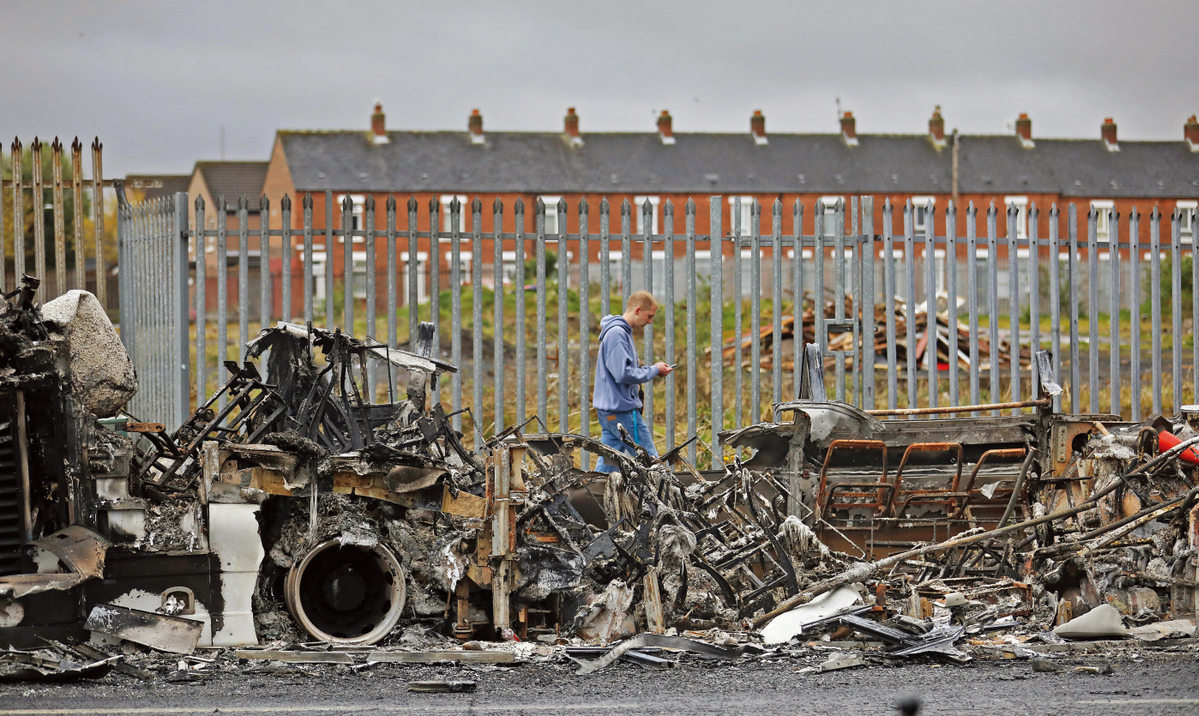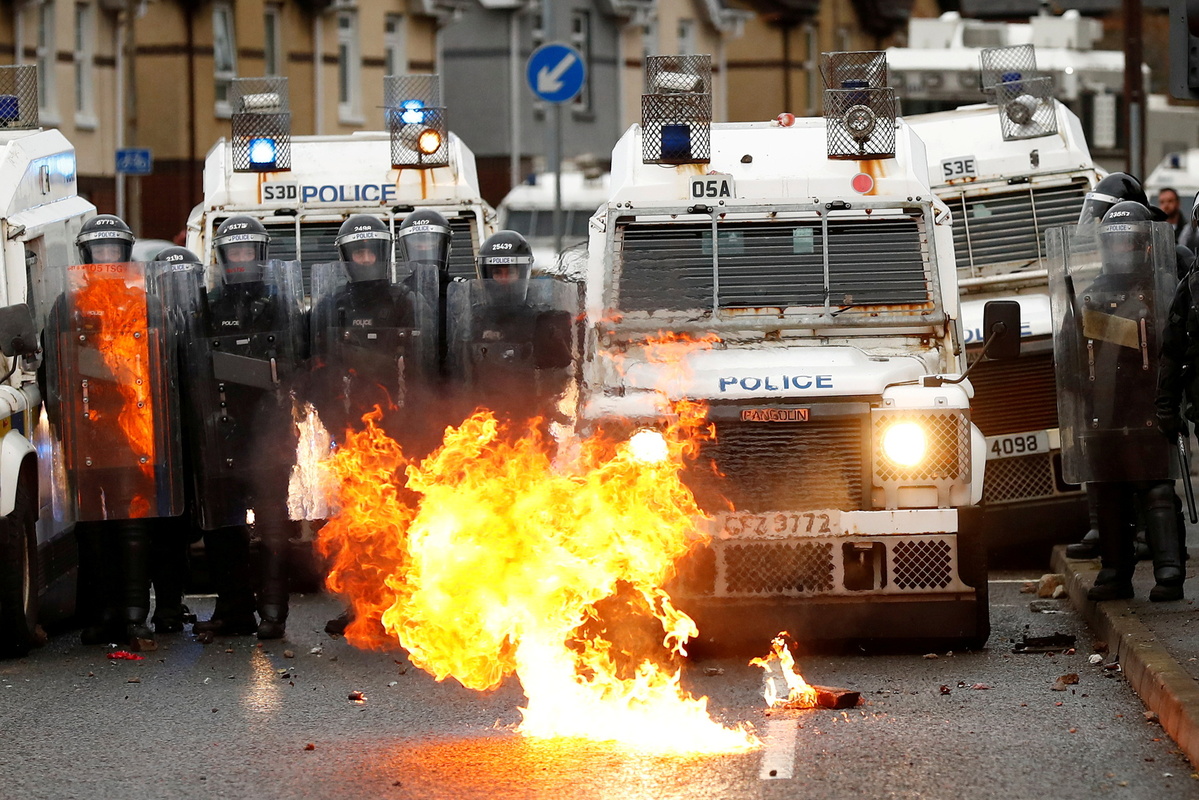Violence continues despite appeals for calm


Disorder is attributed to frustration among pro-British unionists over Brexit trade deal
Hundreds of people have taken part in fresh violence in Belfast, Northern Ireland as petrol bombs were thrown, a bus set on fire, and police attacked.
Nearly 50 police officers have been injured and 10 people arrested during ongoing disturbances since the end of last month, BBC News reported.
Seven police officers were injured at a boundary between loyalist and nationalist areas on Wednesday night, as crowds of youths attacked each other across one of Belfast's so-called "peace walls" that have separated the two communities since the "Troubles" began more than 50 years ago, agencies said.
The police service of Northern Ireland, known as the PSNI, said some of the violence was influenced by "criminal elements".
Following an emergency meeting on Thursday of the Northern Ireland Executive, the region's devolved government, a joint statement was issued from ministers condemning the violence.

"We are gravely concerned by the scenes we have all witnessed on our streets over the last week," the statement said.
"Attacks on police officers, public services and communities are deplorable and they must stop.
"Destruction, violence and the threat of violence are completely unacceptable and unjustifiable, no matter what concerns may exist in communities. Those who would seek to use and abuse our children and young people to carry out these attacks have no place in our society."
The main political parties in Northern Ireland have all criticized the disturbances but do not agree on its causes, ITV News reported.
Britain's prime minister, Boris Johnson, wrote on Twitter that he was "deeply concerned" by the unrest, and Ireland's foreign minister, Simon Coveney, said the violence "must stop before somebody is killed", and called on the region's political and community leaders to work together to calm the situation.
"These are scenes we haven't seen in Northern Ireland for a very long time, they are scenes that many people thought were consigned to history and I think there needs to be a collective effort to try to diffuse tension," Coveney told Irish national broadcaster RTE.
The disorder has been attributed to frustration among the pro-British unionist community over new trade barriers between Northern Ireland and the rest of the United Kingdom that have come as a consequence of Britain's exit from the European Union, Reuters reported.
Irish nationalists Sinn Fein have blamed the pro-British Democratic Unionist Party, or DUP, for fueling tensions with their opposition to the new trading arrangements.
The DUP in turn has blamed police for their handling of a large funeral last year, where they claim COVID-19 regulations were broken. They say Sinn Fein must be prosecuted for the breaches.
Writing on Twitter, DUP leader Arlene Foster described Sinn Fein as "the real law breakers". She said: "These actions do not represent unionism or loyalism. They are an embarrassment to Northern Ireland."
Ireland's Taoiseach, the Irish Prime Minister, Micheal Martin wrote on social media: "Now is the time for the two governments and leaders on all sides to work together to defuse tensions and restore calm."
































